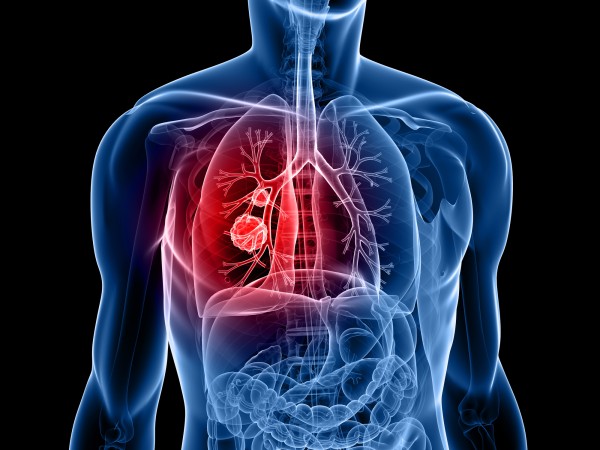NSCLC Patients With EGFR Genetic Mutation Have Better Outcomes With Chemoradiation Compared to Immunotherapy
 Although the immunotherapy drug, durvalumab, has been the standard of care for patients with stage III non-small cell lung cancer (NSCLC) to improve survival, when prescribed after chemotherapy and radiation therapy, patients with an epidermal growth factor receptor (EGFR) gene mutation have not seen the same survival benefit.
Although the immunotherapy drug, durvalumab, has been the standard of care for patients with stage III non-small cell lung cancer (NSCLC) to improve survival, when prescribed after chemotherapy and radiation therapy, patients with an epidermal growth factor receptor (EGFR) gene mutation have not seen the same survival benefit.
A new study by Yale Cancer Center researchers at Yale School of Medicine discovered that patients with stage III NSCLC and an EGFR genetic mutation had improved survival outcomes with epidermal growth factor receptor tyrosine kinase inhibitors (EGFR TKIs) after being treated with chemoradiation, compared to durvalumab. EGFR TKIs are targeted therapies that block certain proteins that help cancer cells grow and spread. The results were presented at the 2023 World Conference on Lung Cancer in Singapore.
Researchers analyzed data from 22 medical institutions, where patients with stage III NSCLC were treated between 2015 and 2022. Out of the 89 patients with the EGFR genetic mutation, those who received chemoradiation followed by EGFR TKI therapy lived longer, compared to those who received durvalumab after chemoradiation, or patients who had no additional treatment. 86% of patients treated with chemotherapy and radiation followed by EGFR TKI therapy lived at least two years longer without recurrence. This disease-free survival rate was much higher than the chemoradiation-durvalumab combination treatment (38%), or no treatment after chemotherapy and radiation (29%). “Our study provides new hope for patients with stage III EGFR-mutant non-small cell lung cancer,” said Amin Nassar, a hematology/oncology fellow at Yale Cancer Center. “The results show that EGFR TKIs used after chemoradiation are effective for patients with this genetic mutation and improve survival.”
About half of the patients experienced negative side effects from both EGFR TKIs and durvalumab, following chemotherapy and radiation. However, patients rarely had severe side effects.
“This data could be important for tailoring treatment plans for different patient groups and improving outcomes for patients with advanced lung cancer,” said Nassar. “While these findings are exciting, further research is needed to confirm the best treatment strategy for patients with stage III EGFR-mutant NSCLC.”